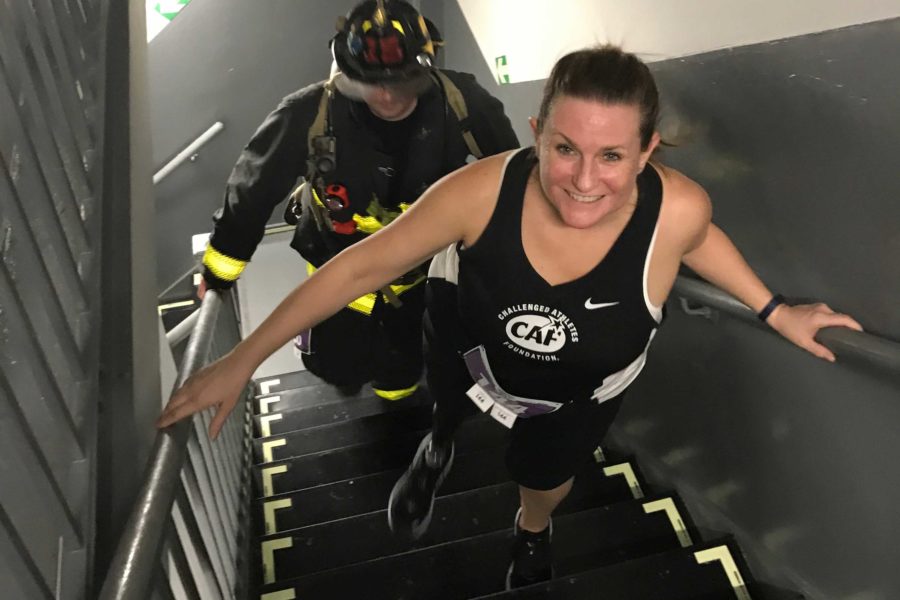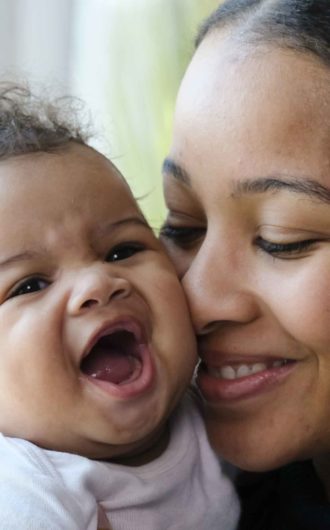A successful career woman who grew up in northern Massachusetts and moved to the city for work, Roseann Sdoia enjoys watching the Boston Red Sox play at Fenway Park, vacationing on Cape Cod and spending time with her girlfriends. She likes wearing stylish jeans and knee-high boots, and she adores her husband, Mike, a Boston firefighter.
But, although she still can’t quite believe it herself, Sdoia isn’t a typical Bostonian. Her story will forever be linked to one of the city’s most horrific tragedies: the Boston Marathon bombing of 2013.
Sdoia lost the lower portion of her right leg in the terrorist attack that also injured over 250 others and took the lives of three people.
Today, six years later, the former real estate executive now motivational speaker, doesn’t focus on the fact that she was in the wrong place at the wrong time. Instead, she marvels at how she was given a second chance at life.
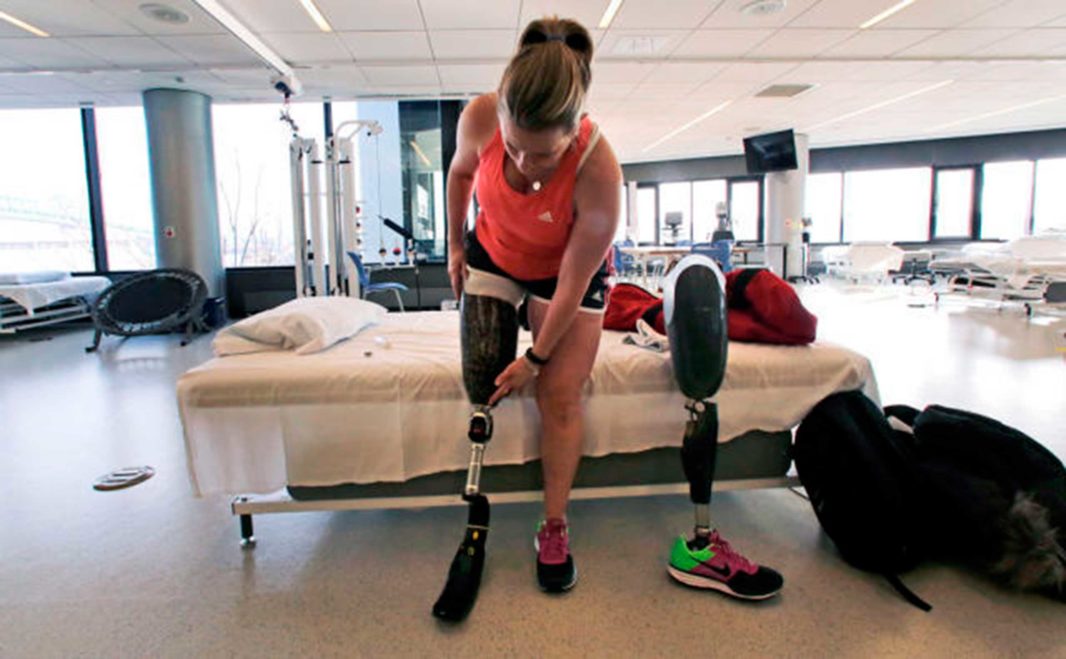
Courtesy of Roseann Sdoia
Roseann Sdoia is determined not to let trauma and loss stop her from living her best life.
Despite the devastating losses of that April 15, Sdoia counts her blessings. The traumatic event brought her love, unshakeable bonds of friendship, and a platform to give back to those who need it the most.
In the weeks leading up to the 2019 Boston Marathon, Sdoia sat down with us to talk.
Leading up to Marathon Monday, her schedule is jam-packed with several speaking engagements, appearances, fundraisers and a 5K race.
“I like to be as busy as possible and get myself through it so I’m not sitting and thinking about it,” she says. “[Thinking about it] doesn’t get me anywhere. I like to be out with friends and family.”
This resilient attitude in the face of adversity has been a mainstay throughout Sdoia’s recovery, and arguably, it was partly what helped save her life as she lay bleeding on the Boylston Street sidewalk six years ago.
Sdoia altogether lost 90 percent of her body’s blood, but despite that, she willed herself to stay conscious as first responders drove her in a police wagon, her mangled leg still bleeding, to Massachusetts General Hospital.
One of those first responders, Boston firefighter and Iraq war veteran Mike Materia, is now her husband. He held Sdoia’s badly burned hand all the way to the hospital.
Moments before that, 20-year-old college student Shores Salter had secured a makeshift tourniquet on Sdoia’s injured leg to prevent as much blood loss as possible. Boston Police officer Shana Cottone and Materia attempted to flag down an ambulance, but they all drove by, overloaded with other injuries.
With precious minutes of Sdoia’s life ticking by, the three strangers decided to transport her to the hospital on the back of a police wagon instead and finally, in the hands of some of the best trauma doctors in the country at MGH, Sdoia closed her eyes and let go.
Those three strangers who led Sdoia to safety — Salter, Materia and Cottone — became the subject of her book, “Perfect Strangers.” Today, they’re like her family.
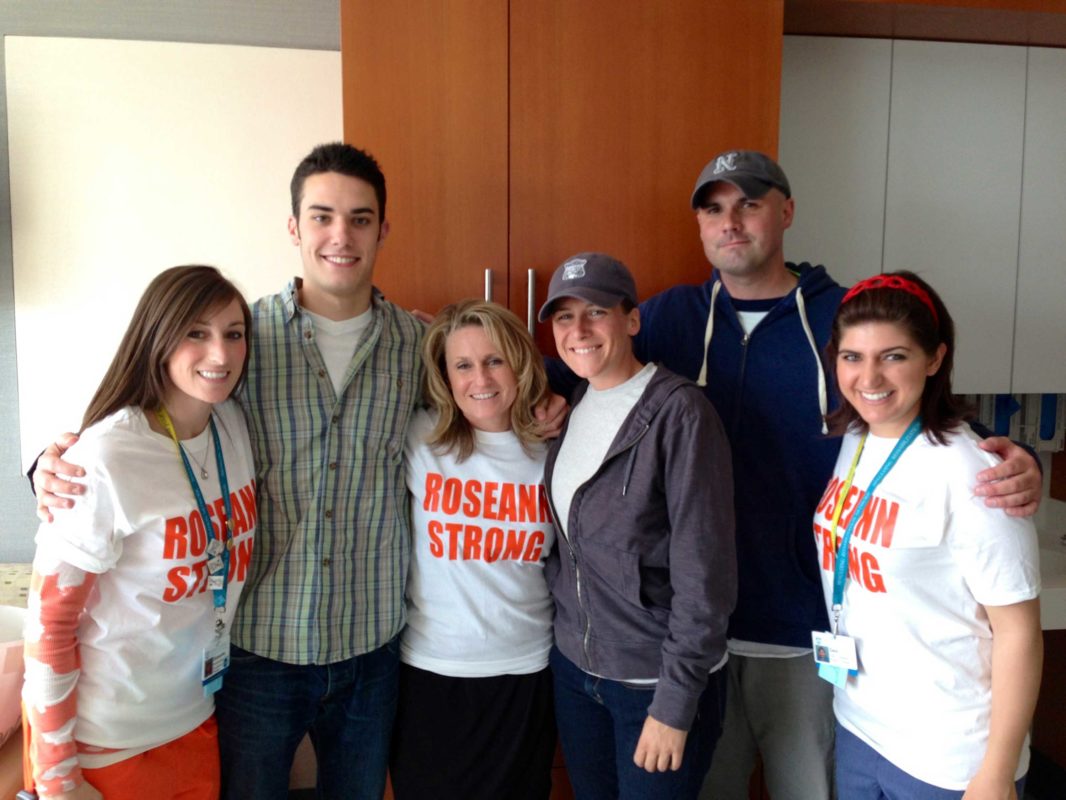
Courtesy of Roseann Sdoia
Roseann Sdoia (center) with Shores Salter (in plaid at left), Shana Cottone and Mike Materia (both in blue at right).
Co-written by Jennifer Jordan, the book was first published in 2017 as a hardcover. This month, it is being re-released as a paperback. Writing it was a way for Sdoia to set the record straight.
“In the whole media craze, there were some incorrect things being written,” she says.
When a former co-worker made Sdoia realize she had unwittingly become part of history, the desire to tell her story became greater. Writing it all down helped her come to terms with how surreal her life had become.
“What happened to me is bizarre,” she says, in her frank way of speaking. “To say I’ve been blown up as part of a terrorist attack and then to be a part of history is crazy. But because I had become part of history, I wanted to get what happened to me, and us, down in the way we remembered it and in the way we saw and experienced it.”
Sdoia keeps in constant contact with Salter and Cottone. “They’re always in my thoughts and during this time of year we do try to get together.” Usually, Salter, Materia and Sdoia participate in the Boston Athletic Association’s 5K walk together, held before the marathon. Cottone usually ends up having to work.
Materia has never left Sdoia’s side since dropping her off at MGH that fateful day, visiting her at the hospital regularly throughout her recovery and bonding with her family.
The couple married in late 2017. “It was clearly not your typical meeting, dating and getting together,” says Sdoia. “But it happened to bring us together, and we realized the other person had all the qualities we were each looking for.”
Evident throughout her book and personality, Sdoia often uses humor to get through the tough moments. She darkly joked that her first pedicure after the bombing unfortunately did not come with a one-foot discount.
“I find that it definitely helps the way you perceive things. If you can’t laugh at something, you just get frustrated,” she says. “I don’t like the feeling of frustration, it takes more energy to be upset and angry.”
For Sdoia, wearing a prosthetic leg means having to think about everything: From finding the right clothes and shoes that will fit (without forgoing style), to having to plan ahead of time for weather conditions that might impede her from walking safely.
“There’s no jumping out the bed, putting your shoes on and running out the door,” she says.
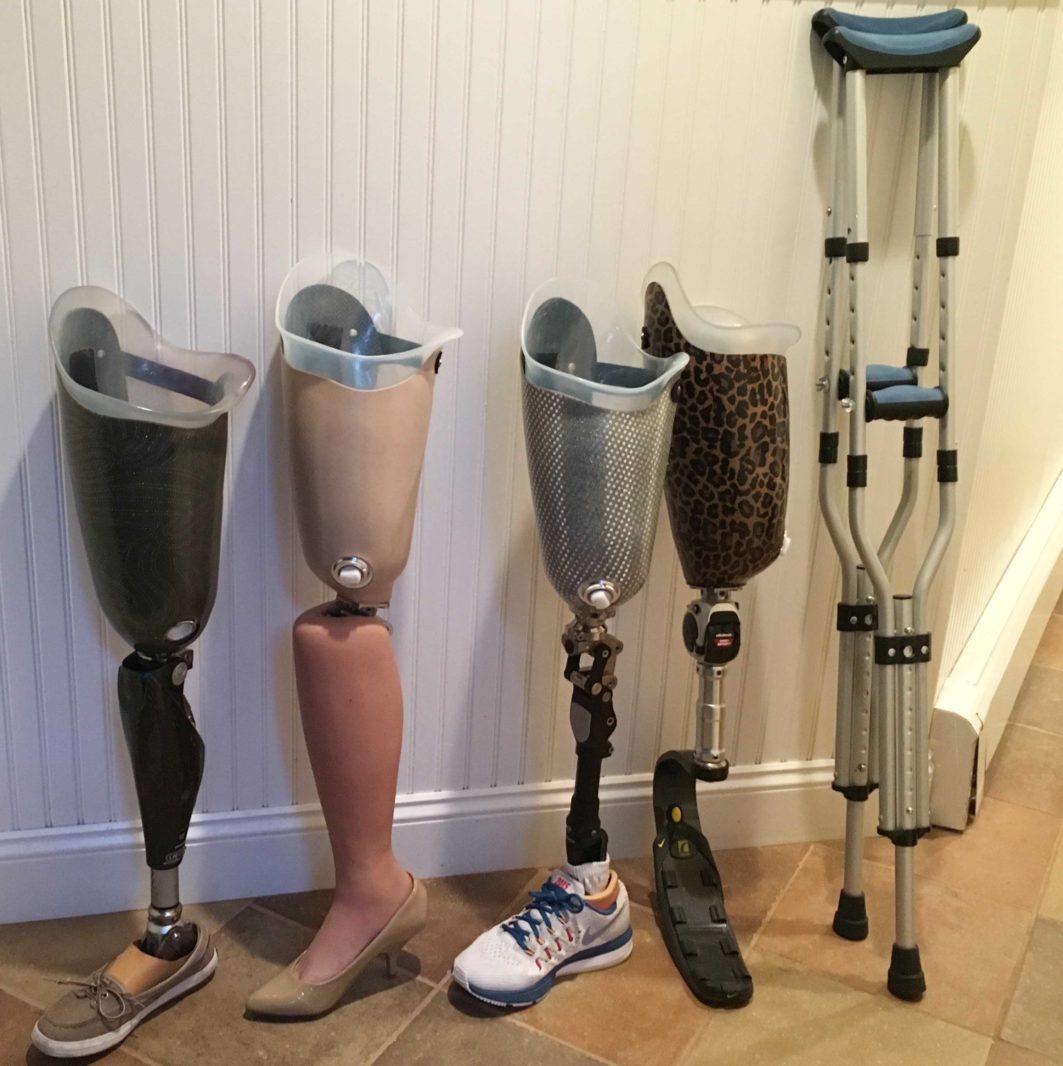
Courtesy of Roseann Sdoia
Roseann Sdoia’s prosthetic options — she does not forgo style.
Sdoia’s beloved tradition of watching the marathon with her friends while sipping drinks at the nearby bars and absorbing the palpable energy of the crowd will never be the same again.
“I changed the way I look at things in the sense of being in certain locations that have a lot of people and don’t have protection or security measures, you would never catch me in one of those crowds,” says Sdoia.
She has gone back to the marathon every year since 2013 but has eased her way into the crowd over time. In 2014, she watched the race through the window from the top floor of the Prudential at the Mandarin Hotel.
“Last year was probably the most I’ve been in the crowd,” says Sdoia. She joined Materia as he crossed the finish line, completing the marathon.
This year, she will attend an annual watch party hosted by another bombing survivor, Heather Abbott.
Sdoia says she regularly supports and speaks highly of the Heather Abbott Foundation, which provides custom prostheses to amputees. These typically cost at least $10,000 and are not covered by health insurance.
In her everyday work, Sdoia also spotlights other organizations that support trauma survivors, amputees, veterans and athletes with disabilities.
“My situation was so much in the media spotlight, so people came rushing to us. But, if you’re Joe Schmoe, and you get amputated today, organizations don’t come running to you,” she says. “I make it my goal to share the different ones out there that have grants, charities or foundations that you can apply for to get help.”
Six years into her recovery, Sdoia is making the best of every day, making it her goal to try and learn new things. She goes hand-cycling on occasion and is learning Italian from a 97-year-old nonna.
The most important thing for Sdoia is to relish the simple things in life such as spending time with Mike, taking their two dogs to the beach and enjoying friends and family.
“Life is very short and can change in a matter of an instant, as it did for me,” she says. “I don’t think we stop and smell the roses as much we should.”
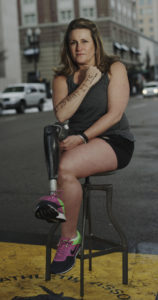
Courtesy Roseann Sdoia
Roseann Sdoia, at the Boston Marathon finish line



 6 min read
6 min read